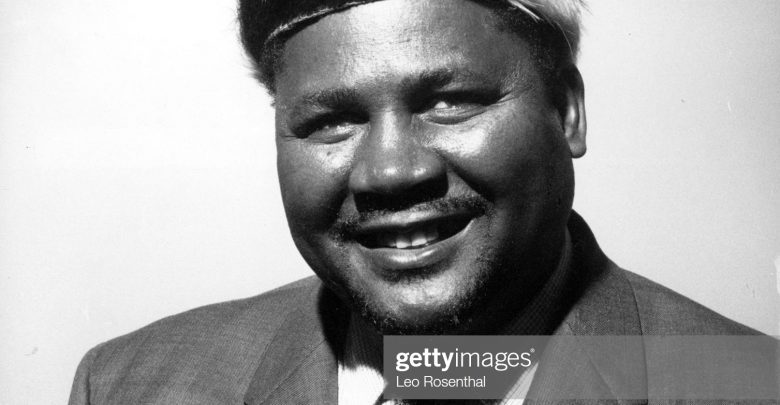
By Siphosami Malunga
Delivered on the occasion of the 2020 Annual Joshua Nkomo Memorial Lecture on 18 April 2020
The Chairperson of the Joshua Nkomo Foundation, and the Joshua Nkomo Museum and Memorial Library, Mr Phathisa Nyathi, the trustees of the Foundation, Museum and Memorial Library, the family of the late Dr. Joshua Nkomo, fellow Zimbabweans and comrades around the world,
I am filled with a deep sense of humility and gratitude, for the honour that the Joshua Nkomo Foundation and family has bestowed on me, with this highly esteemed task of delivering the 2020 Joshua Nkomo Annual Memorial Lecture on the occasion of the 40th anniversary of Zimbabwe’s independence.
I am pleased to inform you that none other than Dr Joshua Nkomo himself joins us for this lecture. His spirit, values, ideals and aspirations, captured in his own words from Rhodesia’s Gonakudzingwa Detention Camp in 1964 that “We set ourselves on a course to fight a wrong, and bring about a new order, where a person’s skin colour was treated as the accident that it was, and not a passport to fuller life”. This selfless courage, to risk life, limb and freedom in confronting injustice, continues to inspire many of us more than half a century later. I will address much of my lecture to Dr Nkomo:
Dr Nkomo, you may think that I am exaggerating, when I say that, we are currently living in truly momentous and extraordinary times. The entire world is locked down, with billions of people globally confined to their homes, in the face of a devastating virus, that is determined to take as many lives as it can invade and infect. The corona virus has forced most countries around the world to stop all travel, ground aeroplanes, seal off national borders, close schools and universities, shut down businesses and offices, close stores except those selling food, and shut down factories. Our way of life as we know it has vanished. Having been taught that humanity is about physically connecting to other humans, we now must avoid all contact with others, in order to deny the deadly virus a way to move between people. We wash our hands countless times daily, we wear masks, and regrettably, we avoid and fear each other. We fear the unknown.
As we take refuge in our homes, the virus scours and rampages across communities, countries and regions, taking lives, whilst scientists frantically devise ways to slow its spread, or find a cure. It is safe to say that, we are experiencing the most unprecedented events in our modern history. This virus has turned our world upside down. It has brought out the best in us – rekindling the collaborative human spirit of compassion, kindness, caring, love and unity. But, it has also brought out the worst in us- amplifying the scourge of hate, stigma, brutality, abuse, greed, selfishness, division and exclusion.
Dr. Nkomo, COVID-19 has exposed, and magnified the fault lines in our societies, and our world. It has brought out the strengths, but also magnified the flaws of our political leaders. It has exacerbated the suffering of the poor, marginalised and excluded sections of our society- who also happen to be the majority. It has reminded us so forcefully, about the unfinished liberation project you started, and left for us to complete. As most of us helplessly hide from the virus in our homes, we are shamefully aware that many of our people do not have homes to hide, or be locked down in.
And when they do, they can scarcely afford to maintain the social distance, that is prescribed to prevent and avoid infection. We are reminded, that the majority of our people do not have food to eat. They did not have food to eat before the virus struck, and they still do not have food now. Worse, they are prevented from, and unable to find any. We cannot avoid asking ourselves, how it is, that a country that has undertaken the final act of liberation, by taking back and redistributing land to its people, still grovels for handouts from external donors and funders, to prevent them from starving.
We have time to think, about why it is that after claiming to have invested three billion united states dollars, to ensure food security, more than half the population faces starvation. We reflect on the fact that the majority of our people, do not have the water that is required to avoid infection, and that they cannot afford the expensive sanitiser option. We are reminded that because the Zimbabwean health system collapsed years ago, due to ineptitude, neglect and corruption by the political elite, who fly out of the country for their own medical care, Zimbabwe was never prepared, and never ready for this deadly pandemic.
Dr Nkomo, it is safe to say that, nothing could have prepared us for this moment. Nothing could have prepared me to deliver this lecture virtually. Such is the time we live in.
Dr Nkomo, a lot has happened since you have been gone. Most of it is not what you would have hoped. Allow me to elaborate –
Following years of armed struggle, on the attainment of our independence, you clearly articulated your aspirations for a post-independent Zimbabwe, when you stated that, “Now that Zimbabwe is free and independent, the priority is nation building, social and economic progress.” I regret to inform you that Zimbabwe has dismally failed to attain, or even advance any of these goals that inspired your struggle for the liberation. I am saddened and in fact enraged, to inform you that the country has regressed to levels that I know drove you, and your nationalist comrades to fight the racist, oppressive, and discriminatory Rhodesian regime. Let me share with you how the country has fared on the many issues that you cared so much about, since you left us:
The first is the Unfinished Struggle for Constitutional Democracy
The struggle you fought for our independence was without a doubt a struggle for democracy. Triggered by your desire to fight racist exploitation of black labour, you led the struggle for worker rights, but quickly realised that the treatment of black workers was simply a symptom of a larger structural problem of undemocratic political power. The whites had it, the blacks did not. There could be no solution, unless and until political power was reconfigured, and black people allowed to vote in democratic one-person -one-vote elections. The fight for freedom and independence, became synonymous with the fight for democracy. How can we ever forget that rally in Harare in 1976, where you punched into the air shouting ‘people power,’ and then ‘we demand majority rule now.’
A true pan-African, together with compatriots, Amilcar Cabral, Kwame Nkrumah, Kenneth Kaunda, Julius Nyerere, and Samora Machel, you internationalised the liberation struggle, inspiring an entire continent to demand self- determination from colonial rule. Your armed struggle finally culminated in one-person one vote, with elections and multi-party democracy in 1980. But this would be short lived. Your personal image, and your contribution to the liberation struggle was vilified. You were labelled a counter-revolutionary, your access to the outside world blocked, Zapu and Zipra leaders arrested, detained or killed, the party structures dismantled, and thousands of its supporters exterminated. As early as 1983, in the midst of severe political persecution you despaired that: “The hardest lesson of my life, has come to me late. It is that a nation can win freedom without its people becoming free”
It had become clear to you, at that point, that the democracy project was doomed from the start. Your liberation struggle aspirations for democracy, were not shared by your erstwhile compatriot, Robert Mugabe, or Robert as you called him. He wanted a one party state, and, would stop at nothing to achieve it, including the murder of 20000 innocent civilians. In the face of such atrocity, unable to protect your supporters, with your comrades in jail or exile, you would make the choice to capitulate, in order to stop the blood from flowing. This would be hailed as an act of patriotism, a demonstration that you were a nationalist, a man who wanted a united Zimbabwe. Yet the truth laid bare was clear. You were Father Zimbabwe before independence, and remained so after. You were always the epitome of unity and patriotism. No doubt, every political decision you took was inspired by your strong sense of patriotism and nationalism. With Zapu conceding defeat on 22 December 1987, Mugabe would get his one party state. The massacres would stop. Matabeleland and Midlands would regain peace. Zapu would disappear, and multi-party democracy as we know it, would die. Every subsequent attempt to resuscitate it would be met with brute force. When former Zanu PF Secretary General, Edgar Tekere resigned from Zanu PF, and became a new proponent for multi-party democracy, even forming his own party, the Zimbabwe Unity Movement, (ZUM) he would be reminded of Mugabe’s resolve for a one party state. His supporters were violently attacked, and a senior leader in his party, Patrick Kombayi shot and left for dead by Zanu PF Vice President Muzenda’s security aides. Like Zapu, ZUM would disappear, then die. Peace and stability would return, but democracy as we know it would remain dead.
A year after you died, former Zimbabwe Congress of Trade Unions, Secretary General, Morgan Tsvangirai and his comrades formed the Movement for Democratic Change, and challenged Zanu PF in the 2000 general elections. This was unacceptable for Mugabe’s one party state agenda, and he unleashed his template of violence on the new party and its supporters. The violence would fail to stop the MDC from winning up to 46 % of the vote, against Zanu PF’s 47%. It is clear that, considering this close margin of defeat, added to the allegations of manipulation of the voter’s role, the brutal electoral violence suffered by the opposition and the subsequent challenge by the MDC of results in over 30 constituencies (many of which the courts never heard), the 2000 elections were arguably won by the MDC. But, Mugabe had an army, which had sworn to never allow the MDC to take power, and 30 free seats to stack on the Zanu PF tally to retain power.
Dr. Nkomo, this script has been repeated, over and over again. Just like Zapu in the 1980s, the main opposition party is stifled, its members arrested, beaten, tortured and killed. During elections, the violence and bloodletting is especially heinous. In 2008, Morgan Tsvangirai defeated Mugabe in the first round of Presidential elections. Mugabe would later reveal that it was by as much as 70%. But the electoral commission would fail to release the results for 45 days, after which it announced that a run off would be required. The violence template was unleashed again, leaving over 300 MDC supporters dead, and forcing Tsvangirai to withdraw from the run-off. To many Zimbabweans, who had no recollection of our true unadulterated political history, all this was new. Mugabe and Zanu PF had presumably gone mad. But to students of history and purveyors of honesty, this was no different from the Zapu script of 26 years earlier. The script even had the same characters, now with embellished titles, but still brandishing weapons, and wearing military uniforms. This time round, Africa and the world would refuse to legitimise Mugabe’s bloody election charade, forcing him into a government of national unity, or GNU as it came to be called. Yes, it was 1987 all over again. Same script, same main characters. Different time. Electoral democracy was again dead. Killed by the men with guns, and by the Zanu PF bureaucrats who count the votes, and decide whose vote counts.
Dr. Nkomo, it may surprise you that, one of the most egregious assaults on the tenets of constitutional democracy in Zimbabwe, would occur in November 2017, and in fact be celebrated by hundreds of thousands of Zimbabwe’s, inside the country and millions elsewhere. After you died, Robert as you called him, consolidated his already imperial presidency, and stayed on, dismissing any comrade that had the audacity to challenge or question him, and maintaining a cabal of sycophants, dedicated to maintaining the political status quo. Encouraged and indeed aided by his cronies, he would pretend to be serving at the leisure of the people, whilst actively pursuing to be president for life. But he would grow old, weak and senile, and attempt to install his wife to take over. This would be a bridge too far for his comrades who would unleash the army to remove him in a coup.
You were always clear that, “The police and army are the most essential entities, responsible for ensuring peace and tranquillity, and need the protection of the constitution the most, and there can be no private army.” But your warnings that, “It is not necessary to have the police and army answerable to political parties,” would ring hollow in November 2017 as an army general took to national television, to announce that the army had taken over, to resolve a dispute within Zanu PF, and that it was actively pursuing criminals around the president- which was code for members of an opposing faction of the party. This brazen power grab by the army, working closely with a faction of the feuding ruling party, would lay bare the conflation between the State, Zanu PF and army- for all to see, that the ‘self-styled Chimurenga aristocracy’ had unashamedly consolidated its power and control over the country and its economy.
The irony would be that the coup would be celebrated by many Zimbabweans tired of Mugabe, and falsely assuming, that he was the primary and only cause of Zimbabwe’s multiple crises. With approving crowds on the streets, the coup would be dressed up, and stage-managed with malevolent genius. Despite clear and brazen assassination attempts, targeting members of the opposing faction, it would be sold as soft, bringing in western diplomats, long fed up with Mugabe’s anti-imperial mantra to remain silent, and SADC and the AU to do nothing. But, it would symbolise the crossing of the rubicon and the point of no return for Zimbabwe, signalling again that democracy was not just dead, but buried.
The second is the Unfinished Struggle Against Tribalism and Exclusion
Dr. Nkomo, some have deceptively tried to reduce you to a Matabeleland tribal leader, a tag that you contemptuously rejected. There is reason why you, and no one else, was called ‘Father Zimbabwe.’ You epitomised the quintessential Zimbabwean, one devoid of race, class, ethnicity, gender or religious classification as their primary characterisation. The story is told by the late Cephas Msipa, of how, after receiving the results of the elections in 1980, you telephoned Mama MaFuyane who was in Germany at the time, to inform her of Zapu’s defeat. She responded by congratulating you, saying “Amhlophe” before you could even explain, and then proceeding to say “Oh I am so happy that you have won. I have already packed, and if there was transport to bring me to Zimbabwe tonight I would have come but I have to wait until tomorrow. Oh, I can’t wait.” You were shocked by this response, and Mama MaFuyane had to explain: “I understand Smith lost and the Patriotic Front won. Were we not fighting for majority rule? I am congratulating you for majority rule. That’s what we got. Didn’t we get that?” Your clarion call for joining the struggle for independence, that, “We set ourselves on a course to fight a wrong and bring about a new order where a person’s skin colour was treated as the accident that it was and not a passport to fuller life” defined your commitment to non-discrimination, equality and inclusion, as founding values for any fair and just society.
Your detractors knew that you were the ultimate, and original Zimbabwean. You refused to be labelled, packaged and boxed into a single identity whether racial, tribal, religious, gender or political. You rejected the false, and deliberately misleading characterisation of Zapu as a Ndebele party, even as the facts spoke for themselves, with more non-Ndebele leaders in its highest command serving as your deputies at different times, including James Chikerema, George Nyandoro, Samuel Parirenyatwa Josiah Chinamano and Joseph Msika. You even rejected the notion of an Ndebele tribe, or a Shona tribe, rightly pointing out that these demographic characterisations were developed to serve colonial interests by collectivising different ethnic groups under two broad categories. During the war, these values of non-discrimination were vigorously enforced. Elingworth Poli describes the policy at Victory Camp, which housed ZIPRA female combatants in Zambia: “No tribalism. You do not come from Gwanda, you come from this camp. You do not have a language of your own. Any language, which is spoken here, is your language. We do not want to hear anyone calling someone Shona, Ndebele, Venda, Kalanga. You are one. From today onwards.”
Coming long before Armatya Sen, beautifully debunked the illusion of identity as a social construct in his powerful essay: Identity and Violence: The Illusion of Destiny, in 2005, you rejected the compartmentalisation of identity in any form, but most importantly ethnicity. You recognised before Sen did, that no one has a single identity, and that in fact, for the most part, our multiple identities co-exist comfortably until one of those identities seeks to dominate the others. And that to do so, they often resort to violence. We recall how, in 1981 you refused to accompany the then Prime Minister Robert Mugabe, who had had started nation-wide rallies, speaking about the one party state. In the same year, Mugabe had demoted you from his Cabinet twice, first from the influential position of Minister of Home Affairs, to Public Service, before placing you in the non-descript and humiliating position of Minister without Portfolio. When it came to planning his rallies in Matabeleland, (which you preferred to call the Western Province), and Bulawayo, Mugabe sent an emissary to ask you to join him for the Matabeleland part of the rallies. Your reply was that Mugabe was Prime Minister and could go to any part of the country. You proceeded to ask Mugabe’s emissary: “He has been to the rest of the country without me. Why does he want me now?” The emissary replied: “Well, he likes having with him members of parliament from the area he is visiting.” “Well” you responded “But the problem is that I am not a member of parliament for Matabeleland. I am a member of parliament for the Midlands, and the Prime Minister has already been to the Midlands without me!” In the end, Mugabe’s tour in Matabeleland was with Enos Nkala.
Indeed you were unhappy, and worried about how the government seemed determined to encourage tribal politics in the country, remarking in one of your interviews after elections, reported by the Sunday Mail on July 7, 1985: that “I hope it is not a forerunner of things to happen in Namibia and South Africa when they attain independence. It is a tragedy to allow tribal states.”
There is an African proverb that goes, ‘when a leopard wants to eat its young; it first accuses them of smelling like goats.’ In the early 1980s, wanting to destroy you and your party Zapu, and its support base in Matabeleland and the Midlands, your detractors in Zanu PF accused Zapu of being a Ndebele party as a pretext destroy it, and to commit genocide on its supporters.
We have not forgotten that throughout your persecution on manufactured tribal grounds you insisted, “We cannot move forward if we are divided, we have to work as a nation together, Zimbabwe has people of various colours, but they are one, they speak different languages but they are one. They have different backgrounds but they are one.”
The third is the Unfinished Struggle for Gender Equality
Dr. Nkomo, the struggle for inclusion not only remains unmet, but has actually regressed when it comes to women’s rights and gender equality. Although you lived before the Beijing Conference, and died only four years after it, your support and commitment to women’s rights was unquestionable. You recognised the equal capability, and contribution of women to the struggle. Your military wing ZIPRA established a fully-fledged military training camp for women at Victory Camp in Zambia. You actively and equally promoted study of women in preparation for independence. Indeed, some of the most inspiring, independent and fearless female politicians our country has known such as the late Ruth Chinamano, Thenjiwe Lesabe and Jane Ngwenya, belonged to your movement.
Dr Nkomo, I am pleased to inform you that since you have been gone, Zimbabwe has since had a female vice president, Joyce Mujuru, who served for ten years, starting five years after you died. She would be unceremoniously booted out by President Mugabe, accused of every crime reserved for women in our country including treachery, witchcraft and seduction. Some women would join the male politicians angling for her job in the name-calling and slut shaming. The country remains an unkind place for women. In politics, they are marginalised, excluded and abused by their male counterparts, with the ironic and twisted support of other women. In homes, they are exposed to unimaginable levels of violence and sexual abuse. As our economy has all but completely collapsed, they bear the brunt and carry the economic burden of fending for their families. They comprise the majority of our informal traders, that now realistically sustain the country. They are also the most vulnerable to violations of human rights. In the midst of the COVID-19 crisis, they have been prevented from trading, and their produce or wares confiscated, and cruelly destroyed and burnt. Reports and videos of violent beatings and rape of women by the police and the army are commonplace.
The fourth is the Unfinished Struggle for Economic Progress and Decent Livelihoods
Dr. Nkomo, after you died, President Mugabe and Zanu PF destroyed the economy. The country paid dearly for the unscheduled payment to war veterans in 1998, and the war escapade in the Democratic Republic of Congo. Our Zimbabwe dollar crashed, and has never recovered. Our country is broke. We owe billions of dollars. We no longer produce anything. We import everything. Factories have closed. Unemployment is over 90 %. 20 years after taking land from the white farmers, and giving it to black Zimbabweans, we still cannot feed ourselves. Half of the population faces famine because of a drought we should have been prepared for, had 3 billion dollars meant for food security, not been mismanaged or stolen. Beneficiaries of the land redistribution programme are yet to be issued with secure tenure of their land, beyond mere offer letters that are easily cancelled, withdrawn and revoked, 20 years later. Political elites and their families took, and kept the best farms for themselves. There is no security of title, and when you cross Zanu PF, you lose your farm, much the same way the many Zapu farms were confiscated in the 1980s. We have gone back to pre-independence and patronage times.
We have achieved world record status of a country with the highest hyperinflation in the world, after Mugabe threw all economic reason and sense to the dogs, and printed money in bucket loads. After you died, the government raided citizens’ pensions and bank accounts. NASSA, which houses pensions, has been a citadel of corruption and plunder, leaving old people, including my mother and Mama MaFuyane’s close friend MaSibanda queueing for days, to receive if they are lucky 50 Zimbabwean dollars of her monthly equivalent 15 United States dollar pension. Recall baba that she worked for 42 years serving the Bulawayo City Health Department as a nurse at Pelandaba Clinic, barely 100 metres from your house. But, I want you to know that I am being a good son, and looking after her. Many of our elderly folk are not so lucky.
Hundreds of thousands of people in our country live desolate, desperate and destitute lives. Many go for days without food. When they are sick, as old people often do, they go untreated, because there are no medicines in hospitals, and the government dismissed all the doctors when the demanded decent wages. Women suffer the most, as they did with HIV and AIDS; they carry the burden of caring for the sick and young as COVID-19 bears down on us. When the economy tanked, many citizens left Zimbabwe to look for jobs everywhere. They left their children in the care of the gogos, whose plight was worsened when their pensions were wiped away by the government.
I dwell on this to paint a picture for you of the desperate levels our country has reached. I wonder what you would do if you were still with us. I know that only you could reprimand Robert and at times bring him to senses. After you died, all his compatriots sang him praises. Those that did not, were ostracised and fired from Zanu PF. Those that remained were too afraid but eventually plotted to remove him at gunpoint. Robert’s protégé, Emmerson Mnangagwa is now in charge.
The final is the Unfinished Struggle to Finish the Struggles
Dr. Nkomo, some have blamed you for failing to finish the struggles you fought. They question the many decisions you took at different momentous times in the history of our country. Why for example did you agree to sign the Lancaster House Agreement in 1979? Why did you accept the results of the 1980 elections? Why did you instruct Zipra forces to lay down their arms at Entumbane in 1980? Why did you sign the Unity Accord, and join Mugabe in the government of national unity in 1987? I have heard similar blame laid against your compatriot, Nelson Mandela in South Africa.
With the comfort of distance and time, it is easy to pass judgement on you, and to criticise your decisions and choices. But is it fair? We did not walk in your shoes, or live your reality. What we do know, without any doubt, is that you were a man of peace, a democrat, a nationalist. We know that you sacrificed a lot for our freedom. You risked your life, and lost your freedom for many years. You suffered immense indignity, and persecution for your beliefs and convictions. You watched your comrades, cadres and people die in their thousands, simply because they believed in you, and the cause to which you had inspired them. You did what you did, just as we must do, what we must do.
Your country, Zimbabwe, desperately needs you to rescue it. It needs another you to save it. Your simplicity, humanity and humility are sorely missed now. Your social welfare and social justice wiring was captured by Judith Todd, who herself is a great heroine of our struggle for independence for her support to our liberation fighters. Judith described how she wanted to make an appointment to see you, after you had been kicked out of government by Mugabe. You told her to get into any taxi outside any hotel in Bulawayo, and instruct the driver to take her to Nkomo’s house in Pelandaba. “They all know where I stay”, you said. When Judith got to the house after your bodyguards ushered her in, she says it was like walking into nightmare. Over 50 people were in the lounge, some with broken bones, some with bruises, some in bloodied bandages. You were personally working the phone trying to raise money to help them all. “Even just ten dollars” you were shouting on the phone.
Baba, who is going to be our Joshua Nkomo in our collapsing health system where hospitals have no medicines and equipment, where doctors and nurses are overworked, and paid a pittance, and patients cannot afford the expensive medication that is prescribed. In an economy, that serves a small corrupt political and military elite. In a country, that has no water, no electricity, no money, no fuel, no hope and no responsive leadership. In a country where it is hard to get one hands on just ten dollars, 40 years after independence.
Baba, you once said ‘the country will never die, young people will save it.” We know that it is young people who liberated our country. They fought and died for us to be free. You of course know that my own father, Sidney your protégé was in his late twenties when he was first jailed by Ian Smith, and was 40 years old at independence in 1980. Who will inspire our young people now to see hope in the midst of despair, to seek justice in the face of abuse, to speak out when silenced, to demand change in the face of exploitative and violent politics, to stand up and be counted as they did when you asked them to liberate their country from racist oppressive rule. To resist authoritarian rule and the elites behind it. To save their country!
Who is our Joshua Nkomo of today? Perhaps we should not ask you to come back after all. Rather, it is for those who are listening to your voice, those who know understand and appreciate your ideas, who share and are inspired by your values, to pick up the baton, and continue where you left off.
Thank you for listening and God bless Zimbabwe!


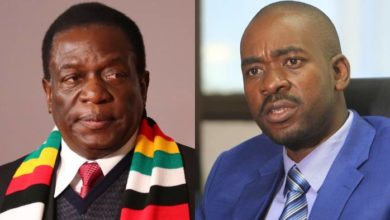
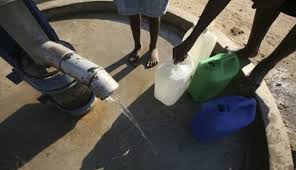
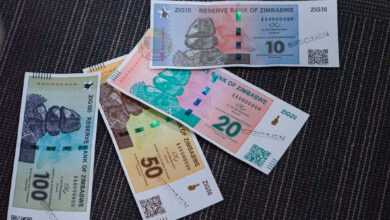
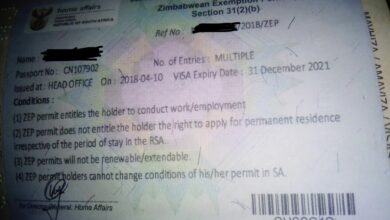

Thank you very much for sharing this passionate and informative lecture.